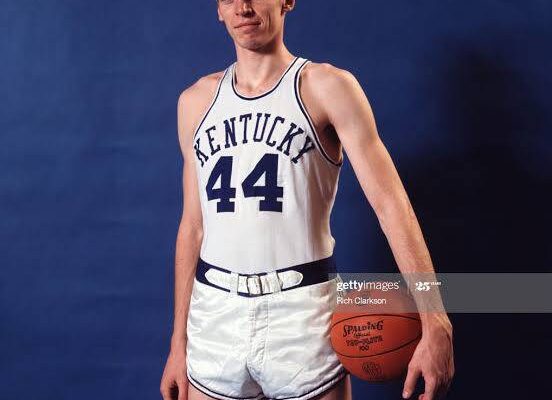Dan Issel’s place atop Kentucky’s all‑time scoring charts—2,138 points across just three varsity seasons—remains one of the most impressive and enduring records in college basketball. Since his senior season ended in 1970, countless Wildcats have chased his mark, but none have come close enough to dethrone him. In this deep dive (~2,000 words), we’ll explore Issel’s achievements, why his record has remained unchallenged for over fifty years, who has come closest, and whether today’s game could ever eclipse “The Horse.”
2,138 career points (1967–70)
Over three varsity years—freshmen were ineligible—Issel averaged a staggering 25.7 ppg, immaculately efficient at 51% from the field. His total remains Kentucky’s highest ever1,078 career rebounds
Issel led Kentucky not just in scoring but in rebounds too, averaging 13.0 boards per contest
Single-season dominance
In 1969–70, Issel poured in 948 points over 28 games—averaging 33.9 ppg—the highest single‑season scoring average and point total in school history (ukathletics.com).
Single-game brilliance
His 53‐point explosion vs. Ole Miss (Feb 7, 1970) broke the school’s record and stood alone until Jodie Meeks scored 54 in 2009 (en.wikipedia.org).
These accolades illustrate not only Issel’s talent but the durability and sustained excellence that made his records possible.
- Three-year eligibility: Issel played just three varsity seasons—freshmen weren’t allowed in college games during his era. Even so, he racked up 2,138 points.
- Modern four-year players: NCAA freshmen became eligible in 1972, but turnover is high—many stars leave early for the NBA, compromising career totals.
- Faster pace, no 3‑point line: Games were quicker, jerseys featured more shot attempts, and defenses were less systemized. Yet Issel’s efficiency was elite.
- Modern slowdown: Today’s game emphasizes spacing, ball movement, and defense-first play. Big scorers still exist, but efficiency and role sharing limit individual spikes.
- Early departures: Kentucky’s top talent often leaves after 1–2 seasons. Stars like Anthony Davis, John Wall, Kyrie Irving, and Jamal Murray aren’t here long enough to amass career totals.
- Few require longevity: Even four-year guards/injuries/non‑NBA prospects rarely average 25+ ppg across their college careers.
- Competition & balance: The SEC and college basketball, in general, are balanced with talented squads, making inflated scoring seasons like Issel’s a statistical anomaly.
- Historical outlier: Dan’s numbers are not just records – they’re outliers across all college programs.
While many Wildcats have put up impressive numbers, none have seriously threatened Issel’s total.
Jodie Meeks (2008–09)
- Single-game record: Meeks scored 54 vs. Tennessee, breaking Issel’s 39-year-old mark (en.wikipedia.org, cdn.nba.com).
- Season totals: His 854-point season ranks 2nd but Fell 94 points short of Issel’s single-season total of 948 (syndication.bleacherreport.com).
- Career total: Meeks left after two seasons (426 career points).
- Walker: 2,080 career points (en.wikipedia.org).
- Givens: 2,038 (en.wikipedia.org).
- Bogans: 1,923 (en.wikipedia.org).
None have tipped past Issel’s threshold.
Other near-misses
- Multi-season talents like Jamal Mashburn (1,843), Tony Delk (1,890) and Jamal Murray (720 points in 2015–16) showcased brilliance but lacked totality (en.wikipedia.org).
One-and-done key players
- Anthony Davis (2011–12): Dominated defensively, but averaged only 14.2 ppg and left early.
- Future stars: Guards like Tyrese Maxey or AJ Griffin could improve scoring but, similarly, would likely depart after one or two seasons.
Four-year stars — rare breed
- Jamal Mashburn (3 years): Near 617 ppg total—impressive, but pace and longevity limited his total.
- Bigger men seldom focus on scoring: Rebounders, defenders, shot blockers (like Oscar Tshiebwe) often rack rebounds not points (wildcatworld.com).
Role & team evolution
- Modern offenses distribute scoring. Usage rates are more regulated; players aren’t expected to carry 33 ppg load like Issel.
- Coaches and analytics encourage balanced scoring efforts and situational substitutions
- Naismith Hall of Fame recognition: Issel was already a two-time All-American at Kentucky, then a dominant ABA/NBA pro (en.wikipedia.org).
- ABA/NBA legacy: Issel remains Kentucky Colonels and Denver Nuggets history; among ABA’s top scorers (en.wikipedia.org).
- Cultural lore: Adolph Rupp famously predicted Issel would lead UK in scoring; teammates joked about him falling down—but he kept delivering (en.wikipedia.org).
Analysis from multiple sources reveals Kentucky has a collection of nearly unbreakable records:
- Career rebounds: 1,078 by Issel (kentucky.com).
- Single-season rebounds: High watermarks still lofty.
- Single-game FG attempts: 42 attempts in 1950 is still near-impossible (kentucky.com).
These stats undercut the likelihood of a modern player breaching Issel’s totals — often balancing in an era opposed to volume dominance.
If any Issel record has a chance, it’s the single-game scoring record:
- Meeks already did: 54 points in 2009.
- Still standing? Yes, but guard ball-handlers with green light nights (e.g., Malik Monk, Aaron Harrison) have flirted.
- Not sure, but possible: One night of cold shooting from the rest of the roster won’t stop a 50+ eruption by a hot hand.
Career totals? Fuggedaboutit—for the reasons outlined above.
A future phenom looking to topple Issel’s recordface these conditions:
- Stay all four years. Most elite Wildcats depart early.
- Score 20+ ppg every season. Over four seasons, 80+ games at 20 ppg = 1,600 points—a full 538 short of Issel.
- Play big minutes in the 2020s. Even if someone averages 25 ppg over 35 games × 4 years = 3,500 points. But no one has done it: last four-year at UK with 25+ ppg? None.
- Avoid injury or slump. Health, eligibility, early NBA testing—it’s a gauntlet.
In essence, the stars must align in talent, health, opportunity, longevity, and offensive design.
- Era nostalgia: Sports fans romanticize the days of high-volume scorers.
- Kentucky fandom: Issel’s record is not just a number—it’s a symbol of an era when one man could dominate.
- The intangible “horse”: His nickname speaks to his durability and reliability—qualities rare and valued, even in today’s game.
Here’s the breakdown:
- Single-game scoring? Possibly. With Meeks’ 54 already in the books, someone else could go for 55+ in a perfect storm of tempo, role, and hot streak.
- Single-season points? Extremely unlikely. Someone averaging ~30 ppg for a full season would shatter 948—so far only Issel achieved it (33.9 ppg, 1969–70).
- Career total (2,138)? Nearly impossible under current college landscape. Even four years at 20 ppg yields 2,000 points—just under Issel.
- Career rebounds? Similarly unreachable—modern big men pursue more blocks/rebounds, but few play four full years.
Every structural factor—early draft entries, balanced offenses, stricter defenses—works against surpassing Issel.
Despite Meeks besting the single-game total, the career and season benchmarks remain steadfast—unlikely to fall anytime soon.
Dan Issel’s records at Kentucky reflect an alignment of talent, opportunity, and era-specific basketball that may never recur. Among his records, the career total stands tallest: it demands longevity, elite performance, and a rare combination of personal and team circumstances.
That said, college basketball is unpredictable, and anomalies happen. A guard with 25+ ppg for four full seasons? Amazing—but so’d be real estate bubble, unicorns, and miracles. If we ever see that, it will not merely be a statistical marvel—it will rewrite how Kentucky builds its program.
Until then, Issel remains “The Horse”—and those 2,138 points galloping far ahead in the ledger



